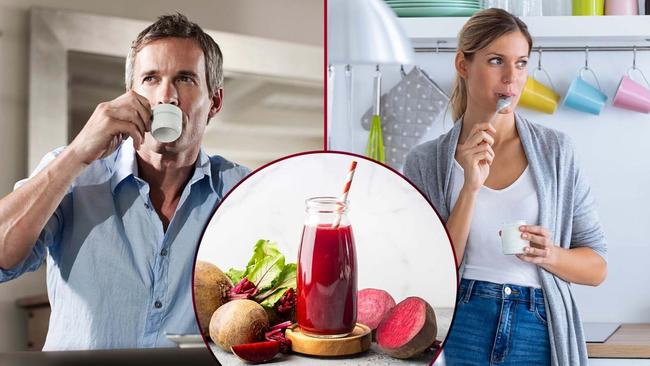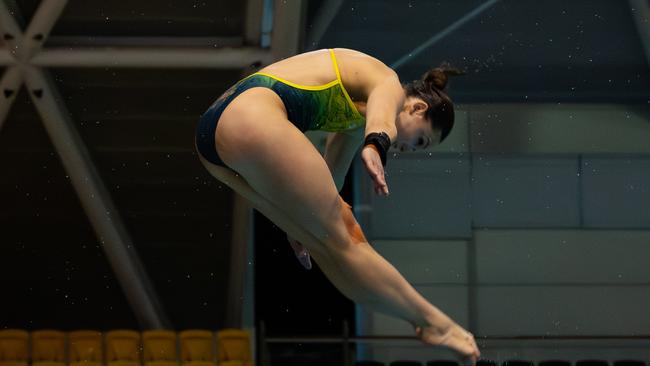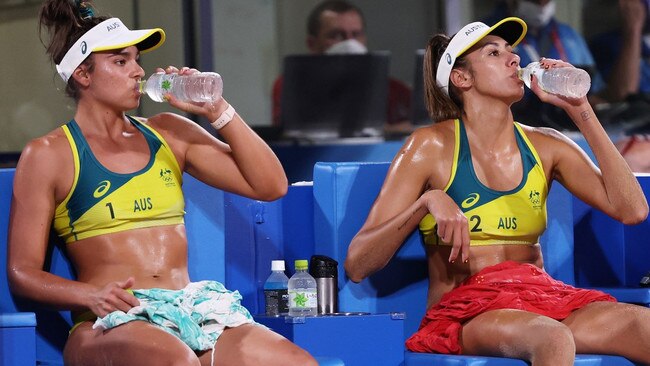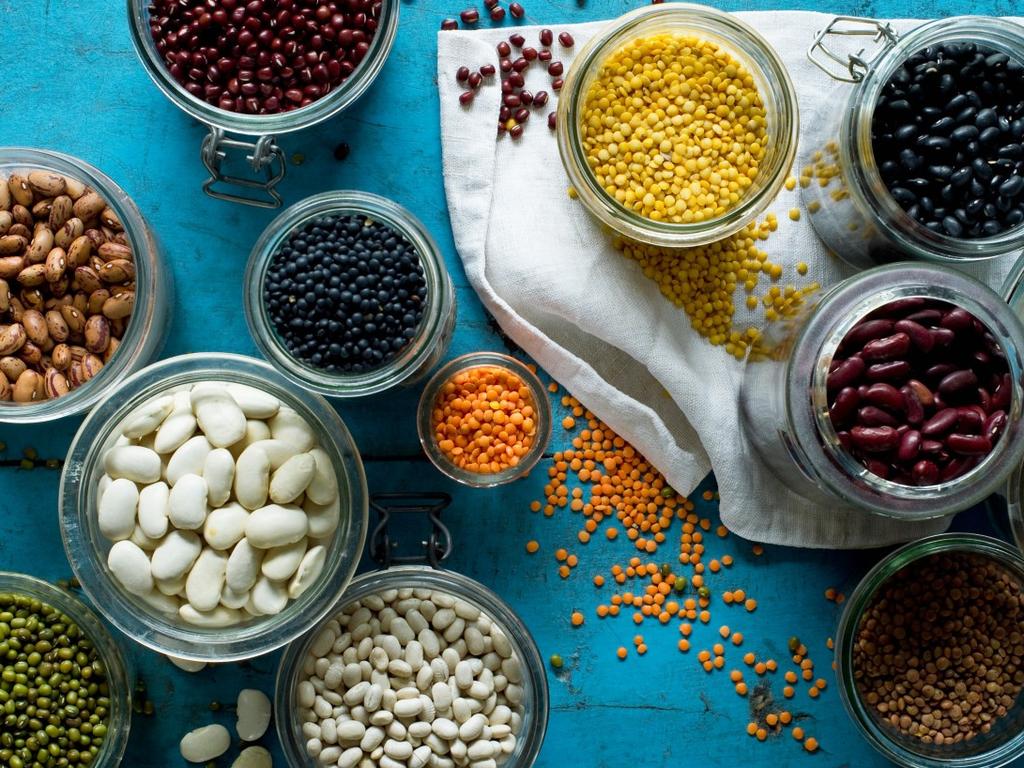Wine gums and beetroot: How to eat like an Olympian
You don’t have to be sporty. Load up on leafy greens and take your tea black – you might not win any races but your body will thank you.

On Friday, the fittest and fastest humans will begin dazzling us with displays of athleticism as the Paris Olympics get under way. Uppermost in the minds of athletes will be how to fuel their way to success and so unparalleled attention to detail has gone into planning what Team GB’s athletes will eat and drink to make it on to the podium. In the athletes’ village up to 60,000 meals will be served in a dining hall that seats 3500 but additional arrangements mean our athletes will not go hungry.
“For this Games what we are offering our athletes nutritionally has gone up another level to previous Olympics,” says Wendy Martinson, lead performance nutritionist for Team Great Britain.
“Everything in sports science has gone up a notch for Paris and no stone is being left unturned to make sure athletes are fuelled and hydrated optimally.”
That will include thousands of snacks in the form of energy gels, cereal bars, bananas and wine gums, an array of fluids and any approved ergogenic aid that might provide that winning edge.
“In our exclusive Team GB areas we have sleep pods and ice baths alongside snacks and drinks that are available all day so if anyone misses a meal they can grab something,” Martinson says. “If athletes don’t fuel right they are in trouble.”
But how do Olympians eat and can we adopt any of their nutrition tricks ourselves?

1. Chew caffeine gum (or have an espresso)
In his autobiography Mo Farah describes how his typical pre-race routine involved drinking “some coffee to wake me up” 20 minutes before a race. That included the 10,000m final at the London 2012 Olympics when Farah says he took a second espresso to ensure he was “pumped up” for the event. “As I make my way out to the track I feel this massive caffeine high come on,” Farah recalls. “I’m buzzing. My hands, my legs – everything is shaking.” It worked: he won.
A comprehensive review conducted by leading sports scientists for World Athletics and published in the International Journal of Sport Nutrition and Exercise Metabolism has since found that there is only enough evidence to show that five supplements enhance performance and caffeine is one of them (the others are creatine, nitrate/beetroot juice, beta-alanine and bicarbonate of soda).
Studies have shown that consuming caffeine can prevent fatigue and feelings of pain by blocking a chemical called adenosine that is responsible for making us feel drowsy. In doing so it improves focus, alertness, motivation and reaction time, and can be helpful in sports from judo to marathon running.
It’s no wonder athletes are devoted to it.
“A large proportion of athletes in Paris will use caffeine in some form,” Martinson says. Caffeine gum is increasingly popular, with research by pharmacologists showing it is absorbed quickly for faster results.
You don’t have to be an Olympian to reap rewards. In February, exercise scientists from Sheffield Hallam University found that recreational runners who chewed gum supplying 300mg of caffeine 30 minutes before a Saturday morning Parkrun ran an average 17.28 seconds faster than those who were given a placebo.

2. Drink black tea
Approximately 40,000 teabags are among the dietary items dispatched to Paris for members of Team GB as part of what support staff called a “home-from-home strategy”. Caffeine-containing drinks including tea and coffee were once considered a fast route to dehydration for athletes but that theory has long since been overturned with some studies showing tea is as effective at rehydrating as water: useful in a Paris heatwave.
Antioxidants in tea could also aid recovery, with researchers from Rutgers University finding that it helps to reduce muscle soreness after intense exercise. “Tea provides fluid and is a source of polyphenols, which are very good for recovery,” Martinson says.
3. Have a few wine gums or jelly beans
Athletes love a sugary treat for an instant energy boost and approximately 35 large boxes of jelly sweets such as wine gums and jelly beans will be delivered to Paris for consumption by Team GB competitors.
The attraction is their significant carb content, with 17g of pure carbs in every four wine gums.
“Carbohydrate snacks may go in and out of vogue with the general population but they are always very much in vogue with athletes,” Martinson says.
Just remember that you are not Jake Wightman or Keely Hodgkinson. With an average 170 calories in a 52g pack of wine gums it is easy to pile on the pounds if your sweet tooth takes over.
4. Take a daily beetroot shot
George Morris, a sports physiology researcher at St Mary’s University, Twickenham, who works with Olympic athletes, says that beetroot shots are a popular choice because they contain inorganic dietary nitrates, “one of the few ingredients proven to have an ergogenic or performance-enhancing effect”.
Nitrates are converted by the body to nitrite and then nitric oxide, which is known to relax and widen blood vessels, leading to better endurance capacity.
One study at the University of Exeter showed that beetroot shots improved stamina by enabling people to exercise for up to 16 per cent longer than usual.
Other food sources of nitrates include rocket and baby spinach leaves, radishes, Swiss chard and oak leaf lettuce. Nitrates are also available in capsule form but, as is often the case, real food is the winner.
In a study researchers at Indiana University found beetroot juice beat nitrate supplements on various aspects of sports performance and recovery because of the phytonutrients in beetroot which amplify the beneficial effects. “Wherever possible, we would recommend real food over supplements because of the additional nutrients and compounds provided,” Morris says.

5. Rehydrate with electrolytes, isotonic drinks and milk
Paris reaches boiling point in summer with daytime temperatures typically topping 30C in July and August. With added humidity and some competitions scheduled for the hottest part of the day, reducing heat risk and dehydration for athletes is critical. “Team GB have planned for the Paris heat meticulously,” Martinson says.
“Hydration is important at any Olympics and we will have a vast selection of electrolyte hydration tabs which are added to water and other fluids as well as cooling ice jackets and ice baths for athletes to use.”
Some sports will monitor urine osmolality, a measure of fluid concentration and electrolyte balance and all athletes will be monitored for signs of dehydration. “The body is good at regulating to higher fluid demands but keeping tabs on thirst will be key,” Morris says. “Athletes will be instructed to ensure urine stays a pale straw colour, which is an indicator of good hydration.”
Isotonic sports drinks containing electrolytes lost in sweat, such as potassium and sodium, will be readily available. “Studies have shown that small amounts of sodium increase the urge to drink, improve palatability and help with fluid retention during intense exercise,” Morris says. “But if you are not an elite athlete you can make your own isotonic drink by adding a small pinch of salt to a glass of full-sugar squash.”
Milk is another option and a favourite of elite competitors. Researchers at Newcastle University and Middlesex University who gave 18 athletes either 500ml of milk or the same amount of a calorie-matched carb-based drink after a sprint training session found milk to be a more “valuable recovery intervention” because it prevented a drop in muscle power and function.
6. Eat yoghurt for peak performance
It’s no coincidence that Team GB has an official yoghurt partner, with unlimited supplies of Danone’s GetPRO range of high-protein yoghurt-based snacks available for athletes at holding camps and the team’s performance lodge in Paris.
Natural yoghurt contains casein, a protein that supports muscle recovery and repair. But the benefits don’t end there. Spanish researchers reported last year that yoghurt has multiple benefits for endurance athletes including supporting their immune system and reducing the oxidative stress of exercise.
It can even help with the mental side of sport, with a team from Southwest University in China showing that yoghurt which is rich in beneficial “probiotic” bacteria enhances gut health, which seems to regulate pathways linked to exercise-related psychological fatigue in athletes.
“There are many health and performance benefits to yoghurt but it doesn’t have to be a specific variety of yoghurt to make a difference,” Martinson says. “Athletes tend to opt for the plainest and most natural types, such as Greek yoghurt.”
The Times






To join the conversation, please log in. Don't have an account? Register
Join the conversation, you are commenting as Logout